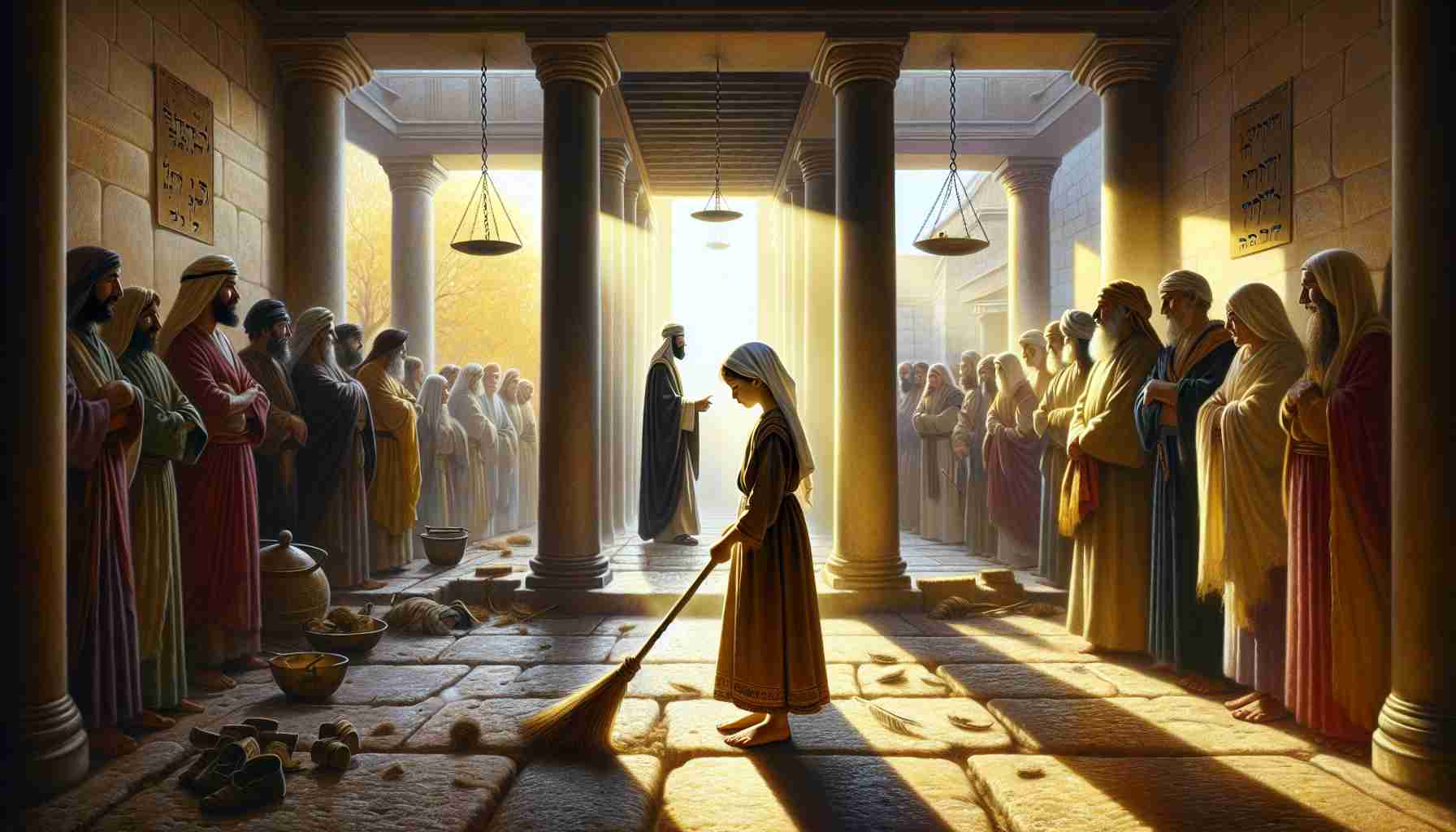

I carried bricks for a living. My hands were always dusty, my back always sore. You wouldn’t know my name if I told you. But I was one of the poor who came back to Jerusalem after exile in Babylon, hoping to rebuild the holy city—and a life.
At first, I was proud. Proud just to be home, to touch the stones of Jerusalem—the sacred city that had been left in ruins after the Babylonians destroyed it. But hopes can break faster than walls when hunger sets in.
"My children are starving!" I heard a woman cry near the marketplace one morning. She wasn’t alone. Others echoed her words. I had loaned my small field just to buy grain. Then I borrowed more just to pay the taxes demanded by the Persian king. When I couldn’t pay back the nobles, they took my vineyard—my family’s land since the tribe of Judah returned from Egypt.
And others were worse off. Some had even sold their children into servitude to repay their debts.
Everything we built was being crushed—not by enemies, but by our own people. The rich among us, the Jewish nobles, charged heavy interest and took everything from the poor. Even freedom.
Then Nehemiah arrived.
He wasn’t born in Jerusalem. He had served as the cupbearer to the Persian king—a high position for a Jew. But Nehemiah left his comfort and came to rebuild Jerusalem’s walls. What none of us expected was that he’d fight to rebuild our dignity too.
I’ll never forget that day. We gathered—hundreds of us—tired and dusty, crowding the city square. Nehemiah stood before the nobles and officials. And for once, they were silent.
“You are charging your own brothers interest!” he said. “Shouldn’t you walk in the fear of God?”
His voice shook with anger, not for himself, but for us. He had power, but he used it for justice. He demanded the nobles return our lands, homes, and even our children.
And they did. Under the full sun, they made an oath before the priests. Nehemiah even shook out his garment and said, “May God shake out everyone who does not keep this promise!”
I wept when my vineyard was restored. But it wasn’t just the land—it was the feeling that someone saw us, defended us, and reminded the rich that we were all children of God.
Nehemiah never took the governor’s share of food or silver, though he had every right. Instead, he fed many from his own table. He led by example.
From that day on, justice wasn’t a hope whispered under breath. It became Jerusalem’s law.
And even now, when I walk those stone paths and see the walls standing tall, I remember: rebuilding a city means more than stones—it means lifting the hearts of the people who live in it.
I carried bricks for a living. My hands were always dusty, my back always sore. You wouldn’t know my name if I told you. But I was one of the poor who came back to Jerusalem after exile in Babylon, hoping to rebuild the holy city—and a life.
At first, I was proud. Proud just to be home, to touch the stones of Jerusalem—the sacred city that had been left in ruins after the Babylonians destroyed it. But hopes can break faster than walls when hunger sets in.
"My children are starving!" I heard a woman cry near the marketplace one morning. She wasn’t alone. Others echoed her words. I had loaned my small field just to buy grain. Then I borrowed more just to pay the taxes demanded by the Persian king. When I couldn’t pay back the nobles, they took my vineyard—my family’s land since the tribe of Judah returned from Egypt.
And others were worse off. Some had even sold their children into servitude to repay their debts.
Everything we built was being crushed—not by enemies, but by our own people. The rich among us, the Jewish nobles, charged heavy interest and took everything from the poor. Even freedom.
Then Nehemiah arrived.
He wasn’t born in Jerusalem. He had served as the cupbearer to the Persian king—a high position for a Jew. But Nehemiah left his comfort and came to rebuild Jerusalem’s walls. What none of us expected was that he’d fight to rebuild our dignity too.
I’ll never forget that day. We gathered—hundreds of us—tired and dusty, crowding the city square. Nehemiah stood before the nobles and officials. And for once, they were silent.
“You are charging your own brothers interest!” he said. “Shouldn’t you walk in the fear of God?”
His voice shook with anger, not for himself, but for us. He had power, but he used it for justice. He demanded the nobles return our lands, homes, and even our children.
And they did. Under the full sun, they made an oath before the priests. Nehemiah even shook out his garment and said, “May God shake out everyone who does not keep this promise!”
I wept when my vineyard was restored. But it wasn’t just the land—it was the feeling that someone saw us, defended us, and reminded the rich that we were all children of God.
Nehemiah never took the governor’s share of food or silver, though he had every right. Instead, he fed many from his own table. He led by example.
From that day on, justice wasn’t a hope whispered under breath. It became Jerusalem’s law.
And even now, when I walk those stone paths and see the walls standing tall, I remember: rebuilding a city means more than stones—it means lifting the hearts of the people who live in it.